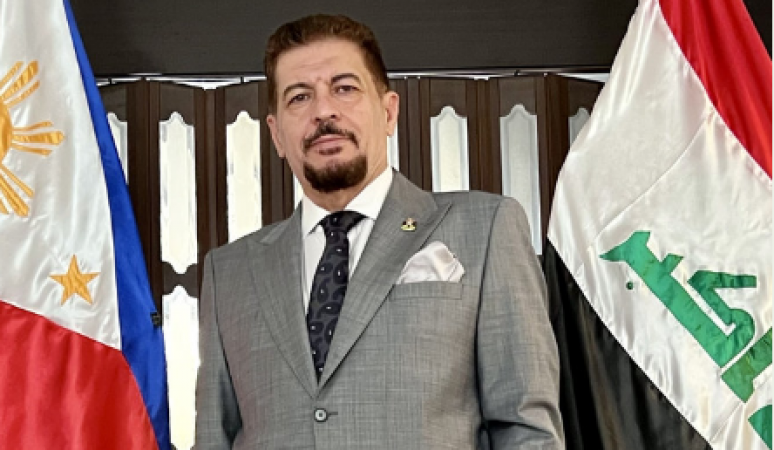
Manila: Iraq is looking to restart its relationship with the Philippines after a ten-year hiatus, according to the head of its mission, as Baghdad considers potential collaboration in agriculture, oil, health, and tourism.
As soon as the Iraqi embassy in Manila opened, formal ties between the Philippines and Iraq were established. The Philippines established its mission in Baghdad five years later, but both nations closed their respective embassies in the early 2000s.
Later, the embassies were reopened, and in 2012, the two nations signed a deal to increase diplomatic interactions and advance bilateral ties. But the last Joint Committee Meeting between Iraq and the Philippines took place in 2013.
Also Read: Kosovo is urged by NATO to reduce tensions with Serbia
Earlier this week, Dr. Khalid Ibrahim Mohammed, the charge d'affaires at the Iraqi embassy in Manila, told Arab News that "now we are restarting. Iraq is keen to strengthen relations with the Philippines at various levels." We can accomplish a lot with the Filipinos, and we actually need a lot of projects. And we are currently looking for partners.
Mohammed, who just recently assumed his position, claimed that while Iraq had been the scene of protracted conflict for the previous 20 years, security and stability were now present.
Also Read: Official: One dies in Russia's nighttime airstrike on Kiev, and more than 20 drones are shot down
For the Philippine side, a number of cooperation proposals, particularly in the areas of agriculture, health, education, security, and oil, were being prepared. Mohammed also stated that the Philippines has been invited to take part in his nation's biggest expo, the Baghdad International Fair.
Also Read: US launches attack near Somalia Shabab attack site
The ancient city-state of Ur, where Abraham was born, could also be a major draw for Filipinos, who are primarily Catholics. Mohammed claims that the government has set aside 9,000 square metres to build "the tourist city of Ur, which will be one of the largest tourist cities in the Middle East."